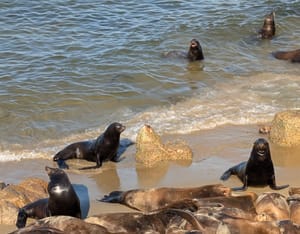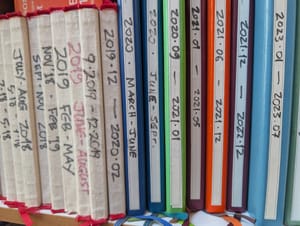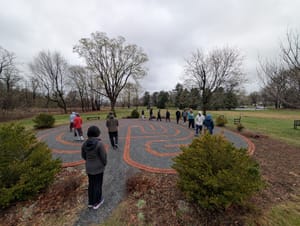Imagine that news stories and blog posts could be tied to a geographic area. If lots of news publishers and bloggers did this, you could:
- Search Google News for stories from a specific neighborhood, like “Hyde Park in Chicago,” or a general region, like “within 50 miles of Three Mile Island.”
- Find all the blog posts about your block within the last week, and know that when you posted a response on your own blog, that other people living on your block would be able to find it.
- Press a button on your iPhone to find all the news within a mile (or 10 miles) of your current location.
- Press a “send to my phone” button on a news story about an upcoming street fair, to get directions to the event sent to your phone (or GPS).
All of this would be pretty easy to accomplish with a simple metadata tagging standard for applying geographic data to news stories. No such standard exists.
But I think we should create one. That’s why I made a grant proposal to the Knight News Challenge, a $5 million fund to support innovative digital journalism efforts that support local/community news.
UPDATE 11/21/2008: The Knight Foundation rejected my proposal because “it does not meet the specific requirement of serving a determined geographic community.” I still think it’s a good idea, though — anyone have any ideas about how to make this happen?
I’m including the text of my proposal below. I’d love to hear what you think.
Describe your project:
This project aims to create and promote an open-source standard for geotagging news stories and blog posts, so that individuals and communities can retrieve and comment on news based on geographic areas they’re interested in.
The project has three phases. First, we’ll create a simple, open-source standard for adding metadata to news stories and blog posts. This will enable publishers or readers to identify the geographic area (state, city, neighborhood, postal code, latitude/longitude, etc) that a story or blog post is relevant to. The standard could be based on existing geotagging standards (e.g. the “Geo” microformat) but will probably require additional development to suit the needs of news publishers and readers. It will be structured so that geographic metadata can be embedded within a news story/blog post by the publisher, added by readers, and/or maintained in a separate “geo news” server.
Second, we will create a geographic news server to support the crowdsourced geotagging of news stories on other sites, such as The New York Times, Yahoo News, Wired.com, etc. We will build simple user applications (for the web, iPhone, Facebook, etc.) to let people search for news stories based on the geographic data hosted on this server. The server will also include geotagged discussion threads alongside the database of geotagged news stories. This server/app combination will serve as a proof of concept for the geotagging standard and will help demonstrate its usefulness.
Third, we will promote the wider adoption of the standard by news publishers, blog software makers, and search engines. The goal is for the standard to become widely used and successful independent of the initial geonews server and applications that we create.
How will your project improve the way news and information are delivered to geographic communities?
Currently, readers are dependent on newspapers and search engines to find local news. Even though papers target geographic regions, it is often difficult to identify what area a particular story is relevant to, hindering search and discovery.
A geotagging standard for news stories and blog posts will facilitate the discovery of locally-relevant news and information. It can also serve as the foundation for creating local communities of interest online, by enabling the geographic clustering of news stories, blog posts, discussion threads, etc.
A well-structured standard will enable readers to find and read information based on any geographic area they choose, whether that’s a neighborhood, a city, or an arbitrary area like “within 50 miles of me.”
How is your idea innovative? (new or different from what already exists)
Standards for geotagging photos and web sites exist, but there is no standard for associating news stories and blog posts with geographic areas.
While bloggers and news publishers could use some of the existing geotagging standards, most are limited to tagging items with a single latitude/longitude (ie putting a “pin” into a map). A robust geotagging standard for news will include the ability to associate stories with more general areas, such as a neighborhood, city, county, state, or country. We can do this by linking the standard to existing “gazetteers” — standardized lists defining specific placenames and their corresponding geographic areas.
The geonews standard will be open-ended, so we can facilitate the addition and redefinition of commonly used place names.
What experience do you or your organization have to successfully develop this project?
Dylan Tweney is a senior editor at Wired.com. He has been a news writer and editor covering technology and science for over 15 years, has won several journalistic awards, and has wide contacts in the internet and online publishing industries. He also has experience as an entrepreneur and publisher.
Mark Henderson, Ph.D. is an assistant professor of public policy at Mills College. He was a coauthor on the U.S. Environmental Protection Agency’s strategic plan for a Geographic Reference Database, which was intended to link documents, images, and datasets by location, flexibly defined. He has 18 years of experience applying GIS to environmental and social policy issues.


